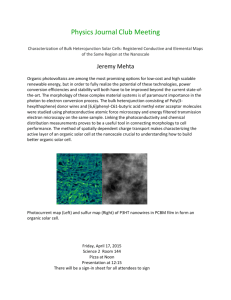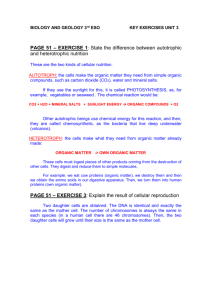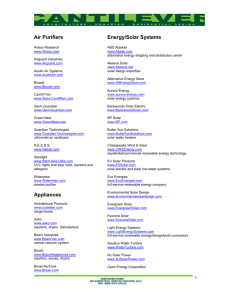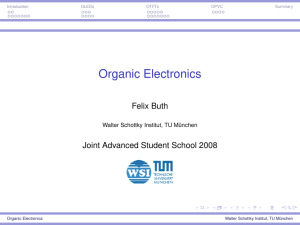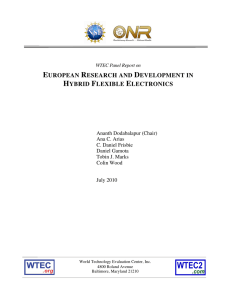abstract
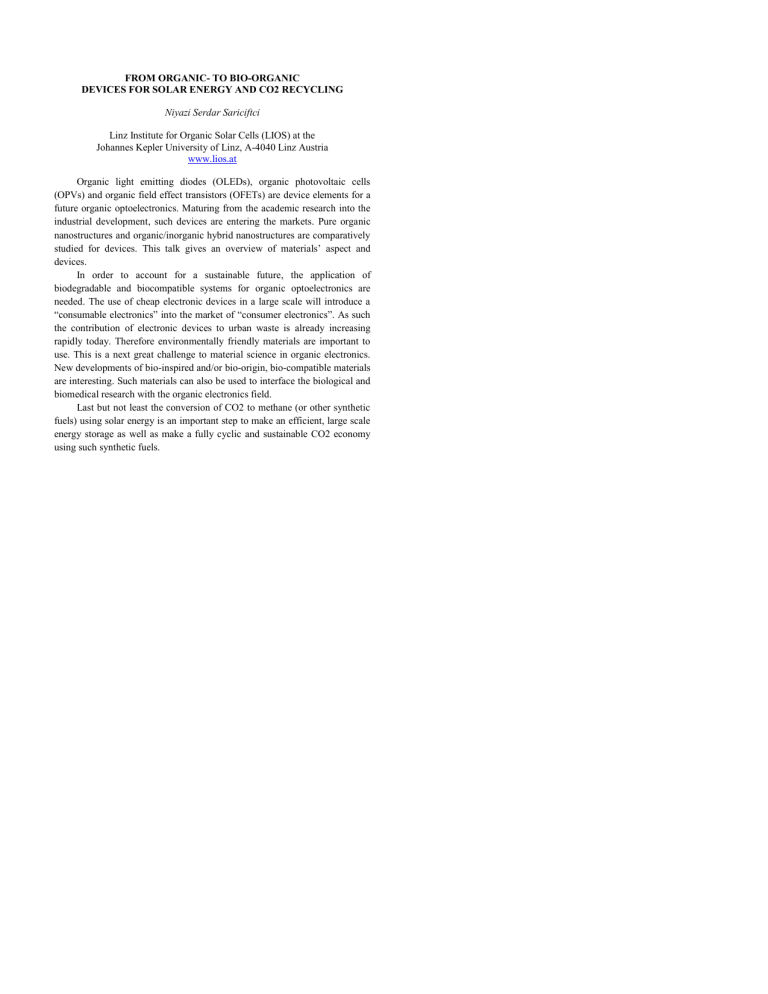
FROM ORGANIC- TO BIO-ORGANIC
DEVICES FOR SOLAR ENERGY AND CO2 RECYCLING
Niyazi Serdar Sariciftci
Linz Institute for Organic Solar Cells (LIOS) at the
Johannes Kepler University of Linz, A-4040 Linz Austria www.lios.at
Organic light emitting diodes (OLEDs), organic photovoltaic cells
(OPVs) and organic field effect transistors (OFETs) are device elements for a future organic optoelectronics. Maturing from the academic research into the industrial development, such devices are entering the markets. Pure organic nanostructures and organic/inorganic hybrid nanostructures are comparatively studied for devices. This talk gives an overview of materials’ aspect and devices.
In order to account for a sustainable future, the application of biodegradable and biocompatible systems for organic optoelectronics are needed. The use of cheap electronic devices in a large scale will introduce a
“consumable electronics” into the market of “consumer electronics”. As such the contribution of electronic devices to urban waste is already increasing rapidly today. Therefore environmentally friendly materials are important to use. This is a next great challenge to material science in organic electronics.
New developments of bio-inspired and/or bio-origin, bio-compatible materials are interesting. Such materials can also be used to interface the biological and biomedical research with the organic electronics field.
Last but not least the conversion of CO2 to methane (or other synthetic fuels) using solar energy is an important step to make an efficient, large scale energy storage as well as make a fully cyclic and sustainable CO2 economy using such synthetic fuels.


